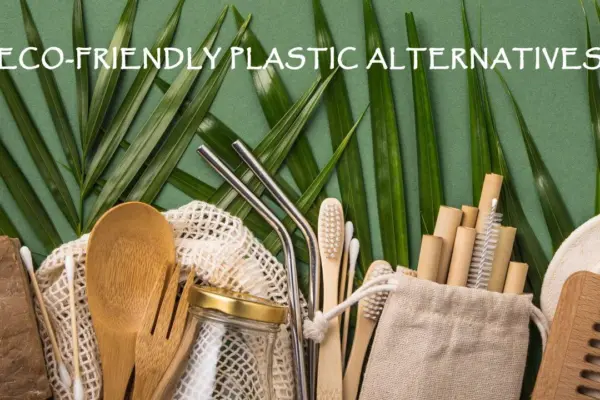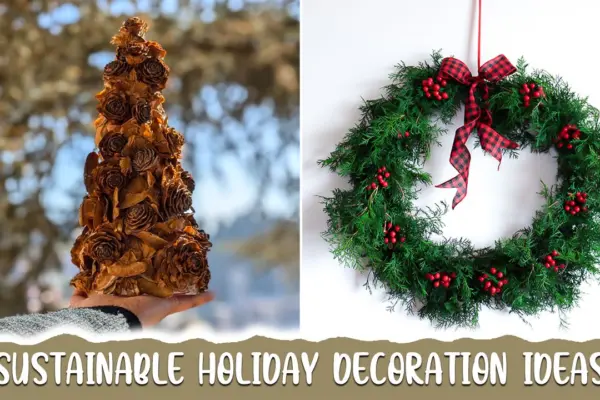Young Girl Makes Bio-Degradable Planter Pots from Groundnut Shells
Class 9 student Srija makes plastic-free planters from groundnut shells to reduce plastic usage in the tree planting process
The young generation is the true testament of what the human mind can achieve if it invests unperturbed effort and passion into it. While the global communities are trying (and failing) to eradicate plastic pollution from the planet, young people are actually putting their time into doing what matters. A young Indian girl is making bio-degradable planter pots from groundnut shells to reduce plastic usage when planting saplings.
14-year-old, Srija was shocked and utterly disappointed when in March 2020, she was digging the soil to plant a sapling but found a plastic bag after digging a few feet underground. The highly toxic, non-biodegradable material never fully decomposes, instead, it breaks down to million pieces of microplastics and pollutes the environment for centuries.
Srija is a class 9 student of the Zilla Parishad High School in Chintalkunta, Gadwal district, Telangana, where every year the students participate in an annual sapling planting drive. The school has encouraged the students to plant a tree even on their birthdays, these seedlings are planted around the school, but are usually grown in plastic bags.
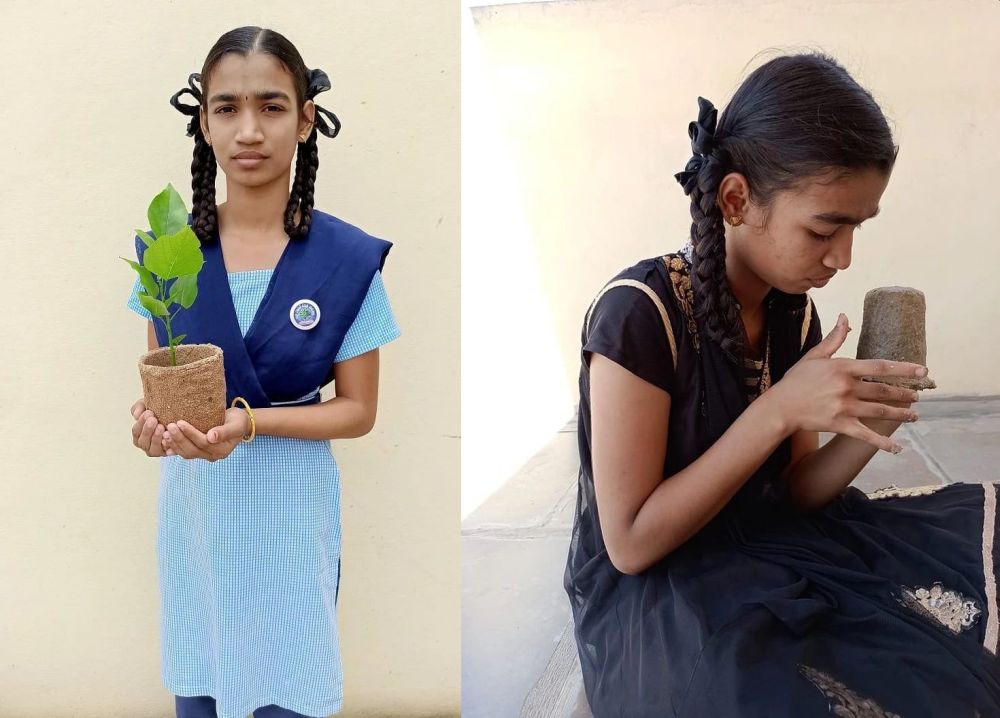
Srija makes bio-degradable planter pots from groundnut shells to reduce plastic usage when planting saplings | Image: The Better India
Sharing her thoughts on the incident Srija said that she realised that the plastic bag was from one of the earlier sapling drives. She did not appreciate the trend to continue and therefore, started to think of a sustainable solution to grow seedlings.
After a few months of extensive research, she innovated a biodegradable planter made from groundnut shell pulp. What’s even more impressive is that she got her entire school to stop using plastics for tree-plantation drives. Groundnut cultivation is predominant in the Gadwal district. Srija was well aware of the shells being referred to as agricultural waste, and she decided to use this waste to make planter pots. She said,
Usually, the shells are ground into a powder and used as an energy source or made into a pulp and used as manure. With help from my mentor and Math teacher, I learned that the shells are rich in phosphorus and calcium.
As groundnut grows on the upper-most layer of the soil, it can retain water and disintegrate over time. Srija managed to make a prototype of the planter by sourcing shells from a mill situated near her home. She ground them in a mixer at home, added water to make it into a pulp, and moulded it onto a water bottle to form the shape of a pot.
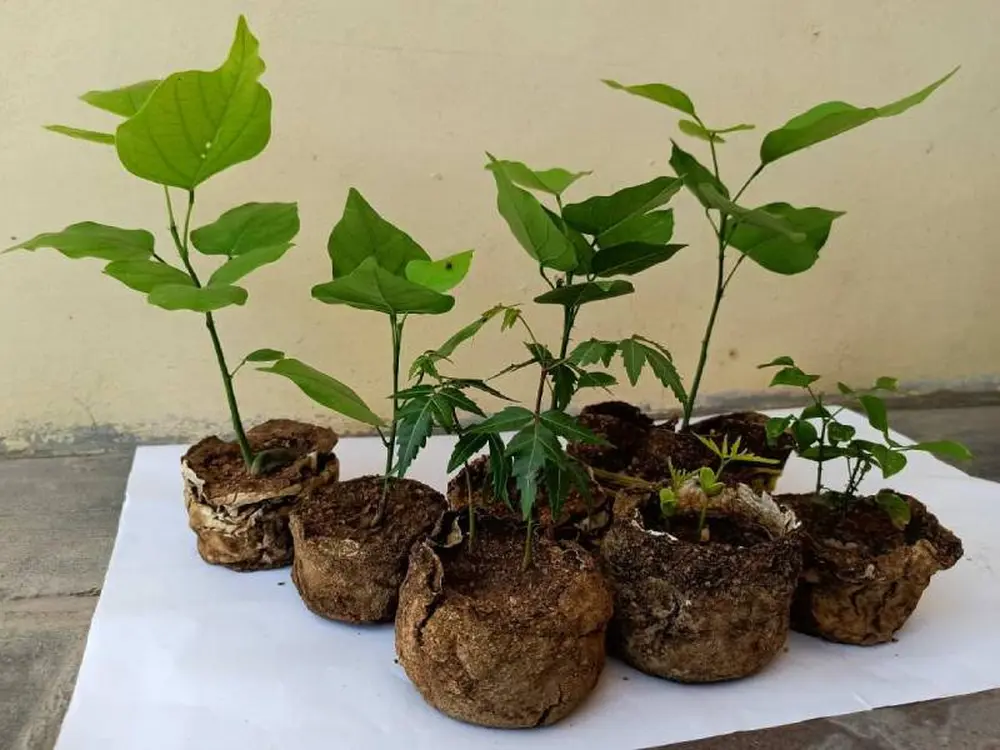
The Biopress was designed and developed by T-Works to scale up Srija’s innovative biopot | Image: Planeta Vital
She shared that the first attempt was unsuccessful due to the fragile structure of the planter, and she approached her mentor for help. Her teacher helped her make the planter’s construct a sturdy one by adding some extra natural ingredients. Once the planter was strong enough, Srija added some soil and planted neem (Indian lilac) sapling into it. She buried it underground at school and documented its progress to disintegration regularly, which took less than 20 days.
Apparently, Srija was awarded a Council of Scientific and Industrial Research (CSIR) Innovation award under the innovation by school students category in September 2020, for creating a sustainable solution to eliminate plastic pollution in plantation drives. Consequently, her idea was also validated by the T-Works, Telangana, who offered a prototype design for machinery to help Srija increase production capacity.
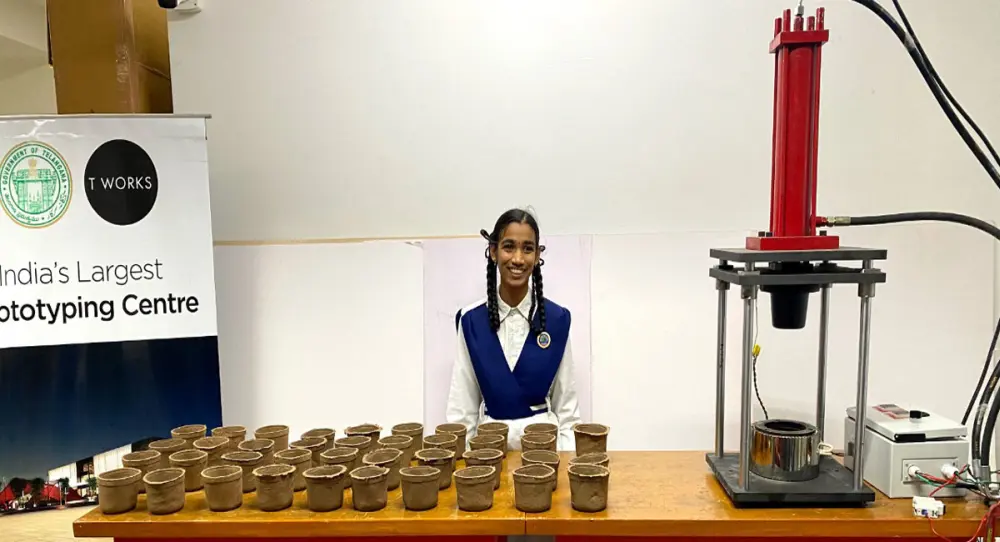
These are biodegradable and are an effective alternative to black plastic bags used in nurseries for saplings | Image: Telangana Today
Srija has been making five to six bio-degradable planter pots from groundnut shells per day by hand and has successfully planted 80 saplings. However, with proper equipment, she can increase the production capacity and make 10,000 planters by July 2021.
It couldn’t be more evident that we need more such individuals to help our environment. How we shape the minds of the young is particularly important as they are the guardians of the future, and it is imperative that they care about the environment and wildlife which are getting adversely affected by toxic plastic waste.
Via: The Better India
